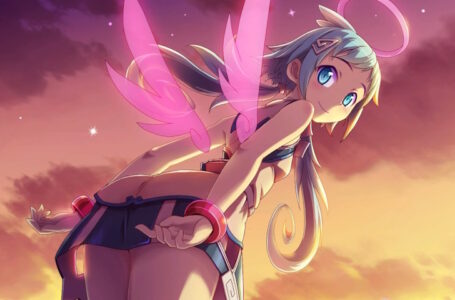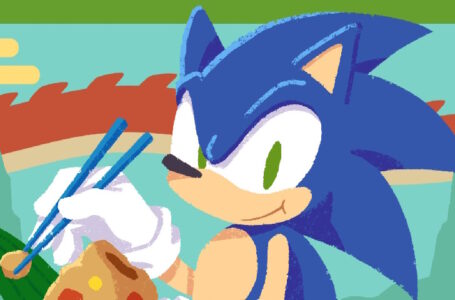Sonic Frontiers provoking mixed critical responses is great news
This morning, I happened to see some “discourse” (ugh) around critical response to the new Sonic title, Sonic Frontiers. It seems that while a fair number of review scores have been decent (often with some caveats), there are also a few outliers who don’t recommend the game or, in one case, slapped it with a 1/5 score.
This is, honestly, great news. Because while I’m a strong advocate for completely ignoring arbitrary numbers that are attached to opinions — part of the reason we don’t use review scores around here — I always find that the most interesting experiences come from games that attract a really mixed critical response.
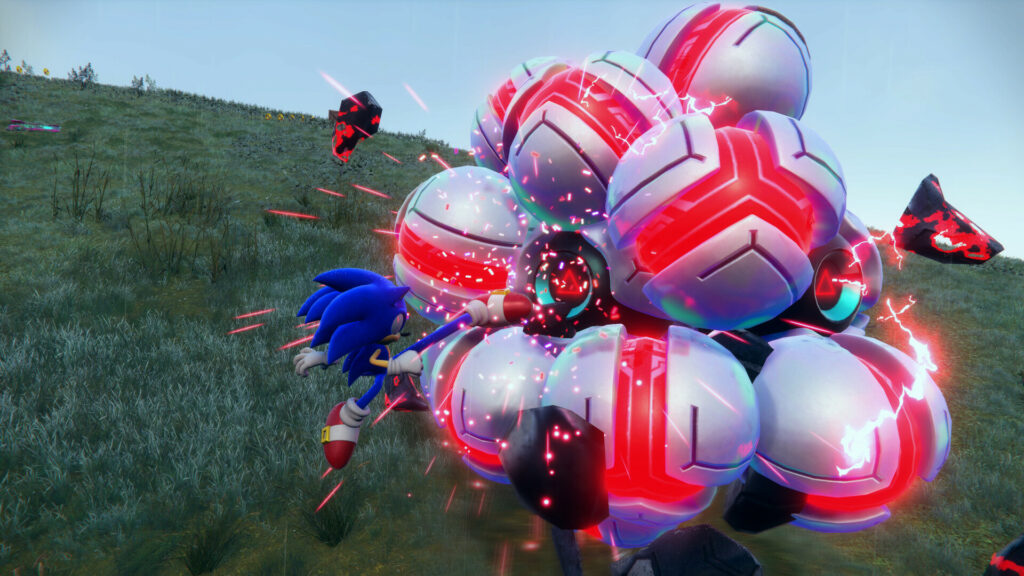
That’s because those are the games that have the potential for people not to “get” them, because they do something unusual or peculiar. Those are the games that, rather than taking a focus-grouped approach to development in order to appeal to the broadest possible audience, they’ve been designed with a particular type of player in mind. Those are the games that don’t play it safe; they don’t care what people think of them. They have their own distinct vision of what they want to do, and by golly they’re going to do it.
I haven’t paid attention to any review scores since about the mid-2000s or so. I remember vividly the moment that I felt my tastes diverge from popular critical opinion; it was in the middle of playing Gears of War, which my friends had assured me was one of the best games ever — and the critical response to the game seemed to back that up. I was unconvinced; I was already tired of military shooters and bald space marines, and Gears of War’s overwhelming brownness made me feel fatigued almost immediately.
I didn’t like the characters, I found the story uninteresting — and by the time I reached a checkpoint where I was repeatedly getting sniped after taking a couple of steps forward without much warning, I had had enough. I took the disc out of my Xbox 360, stuck it in a bag, went into town and traded it in. I forget what for, but I almost certainly had more fun with it than Gears of War.
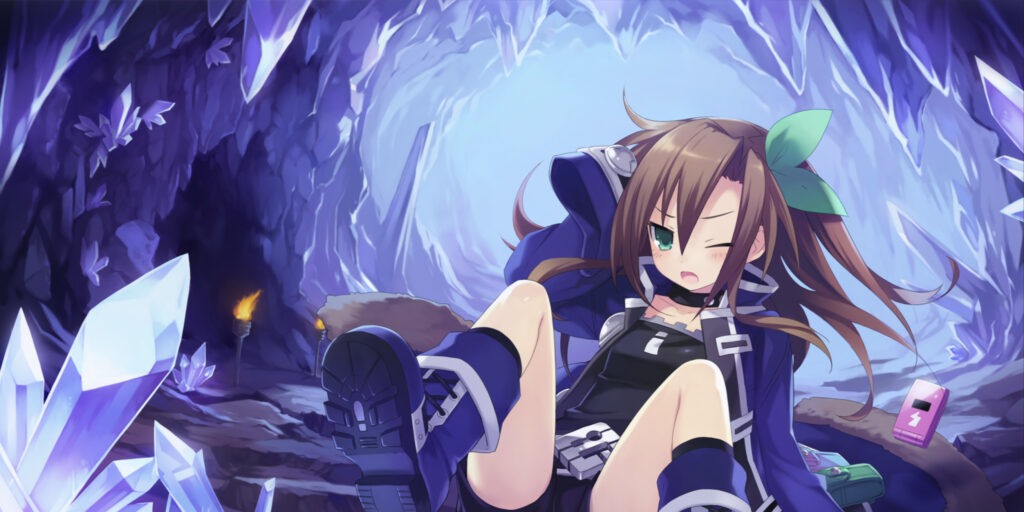
A major milestone for me in this regard came around 2011 or so. I was hanging out on Google+ like all the cool kids did back then, and a friend of mine had posted a picture of a haul of games that she’d picked up recently. They were mostly PS3 titles, and most of them had a colourful anime aesthetic about them. One in particular caught my eye: Hyperdimension Neptunia. Something about the cover art for that game really drew me in and attracted my interest, so I asked my friend about it.
“Oh yeah,” she said. “I think you’ll really like that one.” She was, at this point, familiar with the way my tastes had been going for the past few years; I’d started learning about visual novels and RPGs that were a little more on the obscure side of things — stuff like the Ar Tonelico series on PS2, for example. And, from that, she determined that I’d probably be interested in Hyperdimension Neptunia.
She was absolutely correct. From the moment I booted it up, I was charmed by the characters, story and unusual mechanics. It didn’t matter that it ran like an absolute dog on PS3. I didn’t have a problem with the fanservice, which game critics were just starting to get a real bee in their bonnet about around this time. And I didn’t care that this was a game where the majority of the budget had clearly gone on the 2D art and voice acting. This was a game that felt like it had been made for me.
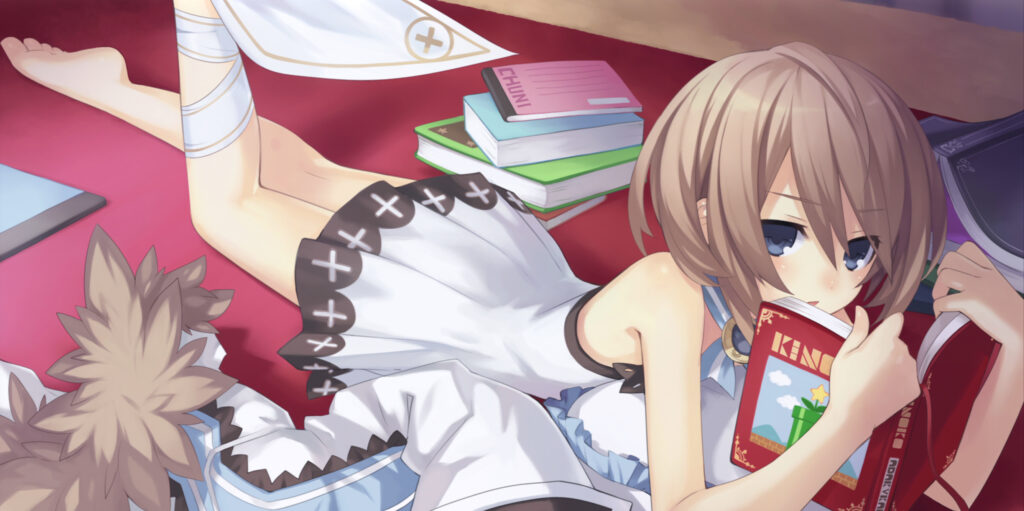
I didn’t look up the critical response to the game right away, but I was unsurprised to discover that most outlets absolutely hated it, with a significant number missing the point completely. Despite having an incredibly strong all-female cast of characters, most (predominantly male) critics railed against the game for being “sexist” or “objectifying women”, demonstrating that they really hadn’t bothered to engage with it at all. I, meanwhile, was having a lovely time.
And it seems that I wasn’t the only one. Hyperdimension Neptunia did well enough to spawn two direct sequels on PS3, followed by a string of spinoffs and remakes, initially on PlayStation Vita — spiritual home of the “otaku game” prior to Sony’s fall from grace — and subsequently moving to PS4 and Switch. Many of these games received an equally tepid critical response, but it didn’t matter; the series had established a fanbase, and had become broadly well-known enough across the Internet that we were even starting to see memes involving Neptunia characters.
It didn’t help, of course, that the early to mid 2010s marked a noticeable downturn in the level of trust between games journalists and game enthusiasts. Incidents such as the controversy over Mass Effect 3’s disappointing ending, frequent instances of mainstream games journalists outright insulting the audiences for anime-style games and, of course, the notorious “Gamergate” situation, the effects of which we’re still feeling in online discourse to this day, drove a huge wedge between the portion of the games industry that was supposed to be informing and entertaining players, and the players themselves.
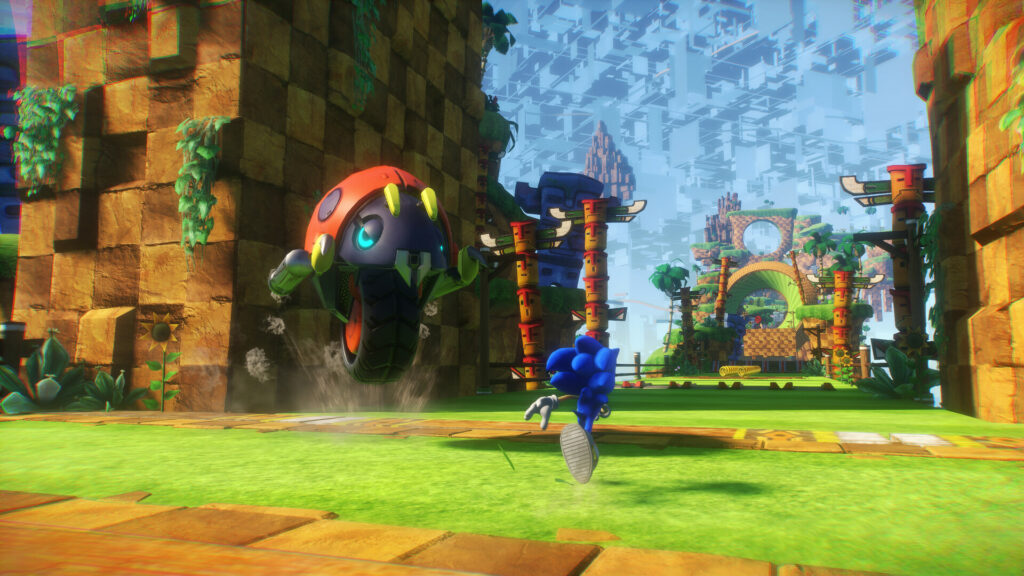
Both sides have their fair share of blame in all this, of course; antagonising game enthusiasts became a quick route to easy traffic through “hatebait” for games journalists, while some truly obnoxious behaviour on social media on the part of the supposed game enthusiasts only reinforced this divide. The upshot of all this is that critical response to a game today is far less important than it ever has been — though it’s still worth paying attention to in some respects. Not as a “buyer’s guide” as it once was, but rather as an indication of how intriguing you, personally, might find a new release.
You don’t have to look far to see some good examples. The near-universal critical acclaim for the new God of War title, for example, makes it clear that it’s not for me — because all those critics are saying the same thing, and those things are uninteresting to me personally. And, as previously noted, the mixed critical response to Sonic Frontiers is something that genuinely has me excited to explore the game — particularly as someone who has played and enjoyed most of the mainline Sonic titles to date, and even had genuine fun with notoriously “bad” entries like Sonic ’06.
Ever since I played and loved Hyperdimension Neptunia, I’ve relished the opportunity to explore the lesser known titles with mixed, mediocre or even poor critical receptions. I’ve discovered some of my favourite games by deliberately stepping out of that “90+” zone that some gamers like to exclusively occupy — and both my own enjoyment and knowledge of gaming has expanded considerably as a result.
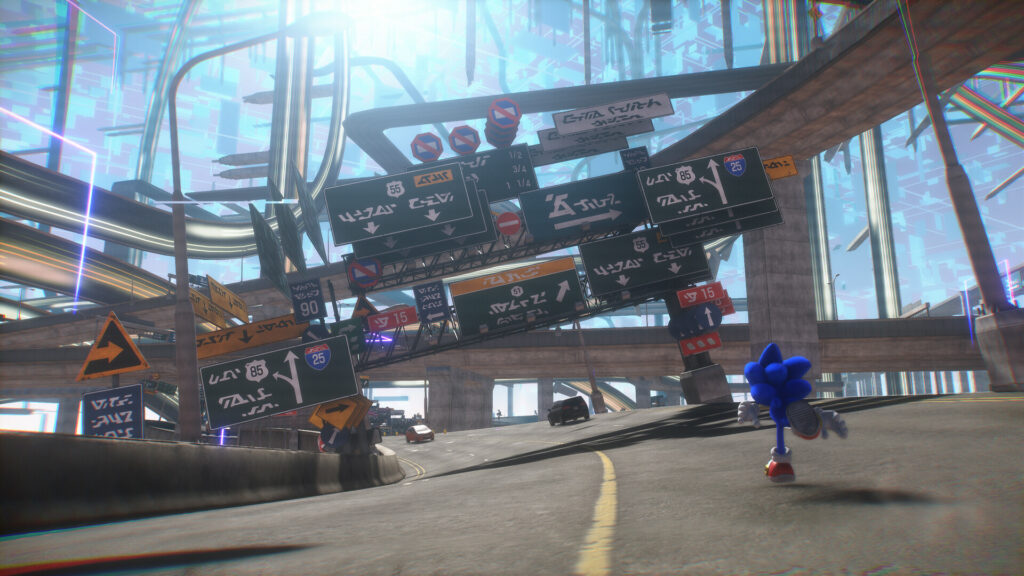
A mixed critical response suggests to me that the game is interesting. In Sonic Frontiers’ case, it suggests to me that it’s trying new things, some of which don’t quite work — but that doesn’t matter, because it’s not just playing it safe. It’s taking risks in an industry that seems increasingly risk-averse due to the amounts of money being thrown around on a daily basis — and for a company as high-profile as Sega, that’s a big deal, particularly considering that Sonic has, for a long time now, been the company’s mascot and therefore, in theory, their flagship franchise.
Activision doesn’t boldly reinvent Call of Duty with each new installment, because they’ve found what works. That’s fine for those who loyally line up and buy the new game each and every year — and it tends to muster a positive critical response, too — but for those who want more varied and interesting experiences from our gaming, it’s boring. God of War suffers from the same issues; it’s playing the “safe triple-A” card by doing something predictable and boring really well.
Sonic Frontiers, though — well, that’s either going to be a ton of fun or a delightful mess. Possibly both. And while I don’t have my hands on a copy just yet, I’m very excited to explore it thoroughly when I do get one!
Join The Discussion
Rice Digital Discord
Rice Digital Twitter
Rice Digital Facebook
Or write us a letter for the Rice Digital Friday Letters Page by clicking here!
Disclosure: Some links in this article may be affiliate links, which means we may earn a small commission if you make a purchase after clicking on them. This is at no additional cost to you and helps support Rice Digital!
- Letter from the Editor: passing the torch - June 30, 2023
- Super Woden GP 2 is looking promising - June 30, 2023
- Inti Creates is making a 32 bit-style Love Live action platformer - June 26, 2023





